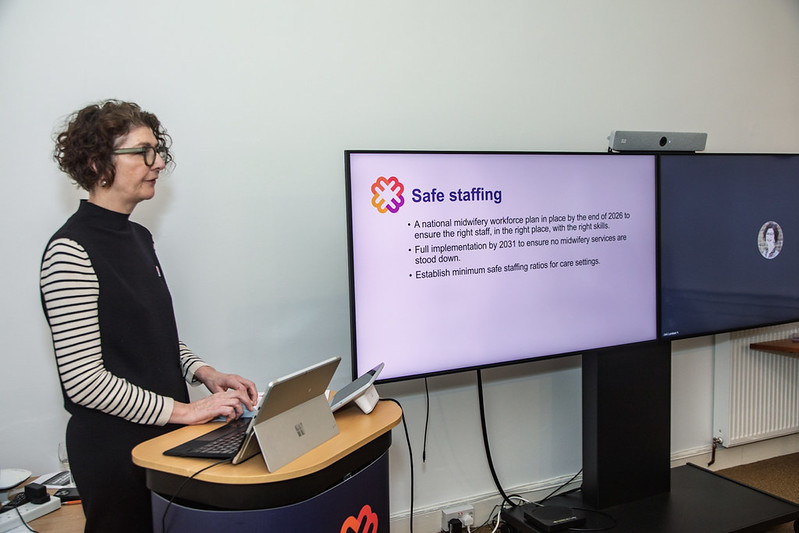The Royal College of Midwives (RCM) and the Royal College of Obstetricians and Gynaecologists (RCOG) welcome the Government announcement in yesterday’s budget of £35 million to improve maternity safety in England, with an emphasis on training for midwives and other maternity staff.
Commenting on the announcement, the RCM’s Chief Executive, Gill Walton said:
“I’m delighted that the Government is now taking concrete action to make maternity safety a priority. We all owe it to women and families to make sure they get safe, high-quality maternity care. One of the most effective ways of doing that is to ensure we retain the staff we have, and ensure that they receive the training they need. Midwives do not work in isolation and multi-professional working plays a vital role in the provision of high quality care for mothers and their babies. The RCOG and RCM both recognise this to be a key component in the delivery of safe maternity care and emphasise the importance of respectful team working to build a supportive workplace culture. That why training across maternity services is so crucial. We look forward to discussing what the Budget announcement means in practice with the Secretary of State in the coming weeks.”
Dr Ranee Thakar, President of the Royal College of Obstetricians and Gynaecologists, said:
“Across maternity services, there are multidisciplinary teams skilled at working together to deliver high quality care. However, the inescapable reality is maternity services are under incredible strain, so we welcome this much needed investment for maternity staffing and training, which will help to retain our skilled maternity workforce and to deliver improvements in care.
“We also welcome the commitment to expanding the rollout of Maternity and Neonatal Voice Partnerships, which have a vital role in ensuring women’s experiences are at the heart of improving local maternity care. This is essential in ensuring everyone receives safe, compassionate and personalised care.”
The RCM is also encouraged to hear plans for a new rostering app for staff. While details are still awaited, it is hoped that the new app will improve flexible working opportunities. The lack of these are often a barrier to midwives remaining within the NHS, especially for those with caring responsibilities.
Gill added:
“We have long been arguing that flexible working in the NHS is vital to boost retention of midwives and maternity support workers (MSWs). The most recent NHS staff survey highlighted that only around 30% of staff were satisfied with flexible working options. If midwives and MSWs are allowed to work flexibly it will improve not just their working life but encourage them to stay in the NHS where they are much needed.”
Other measures in the budget which may impact midwives and MSWs include:
- An increase in the number of paid childcare hours which will provide a lifeline for midwives and MSWs struggling with the cost of living.
- An increase the High Income Child Benefit Charge threshold to £60,000 (currently £50,000) from April 2024.
- National insurance will be cut from 10% to 8%.
Notes to Editors
About the RCM
The Royal College of Midwives (RCM) is the only trade union and professional association dedicated to serving midwifery and the whole midwifery team. We provide workplace advice and support, professional and clinical guidance, and information, and learning opportunities with our broad range of events, conferences, and online resources. For more information visit the RCM | A professional organisation and trade union dedicated to serving the whole midwifery team.
About The Royal College of Obstetricians and Gynaecologists
The Royal College of Obstetricians and Gynaecologists (RCOG) works to improve women’s healthcare across the world. We’re committed to developing the accessibility and quality of education, training and assessments for doctors wishing to specialise in O&G.
The Royal College of Obstetricians and Gynaecologists supports maternity services within the system through its role as an educator; developing the curriculum, improving standards of care through clinical guidance, supporting career development through exams, facilitating professional development courses and events, and support services for its members. In addition, the College brings its specific expertise to bear on quality improvement programmes in maternity and strongly advocates on behalf of women and birthing people and its membership to ensure system wide improvements are identified and delivered.

